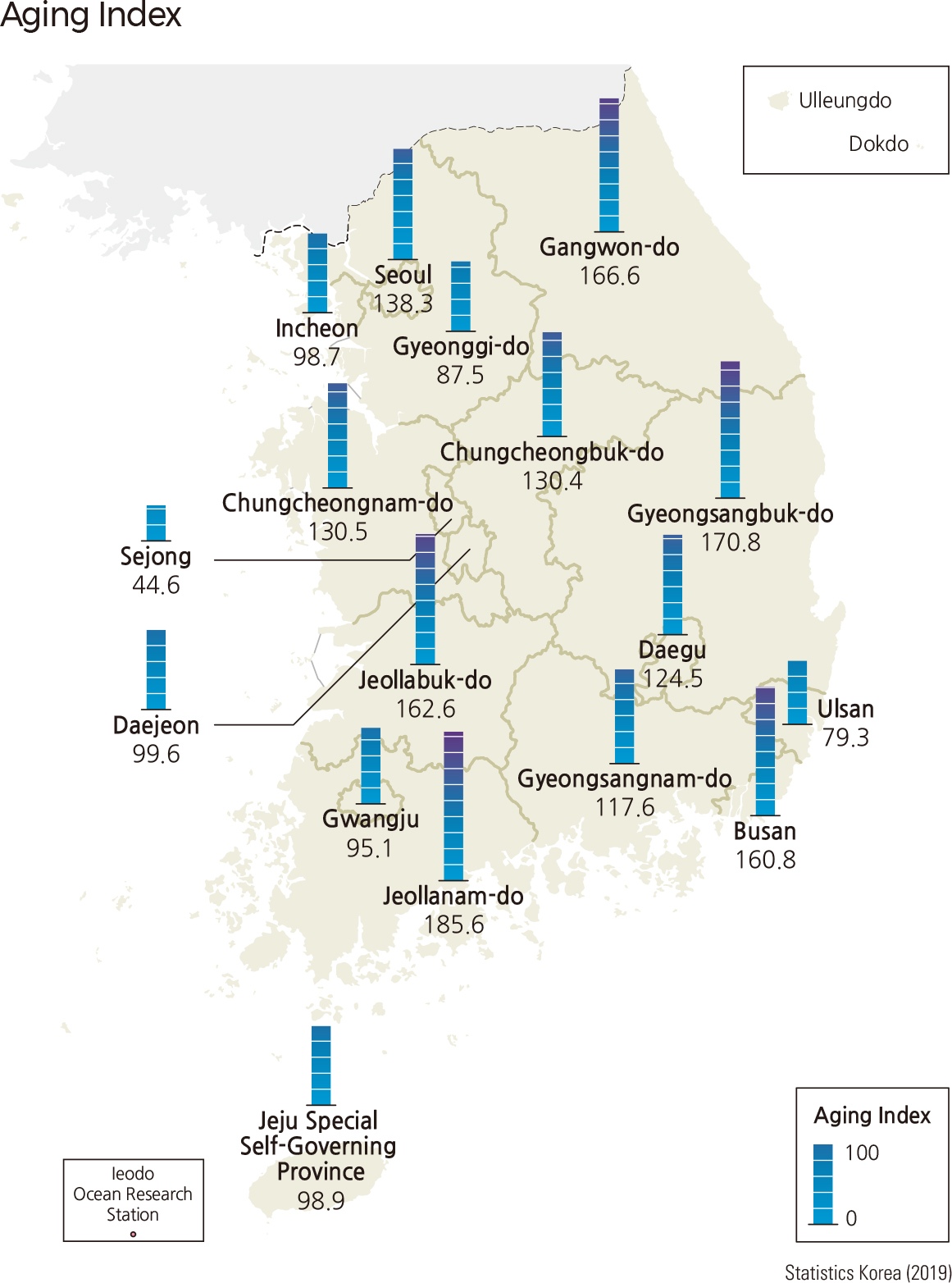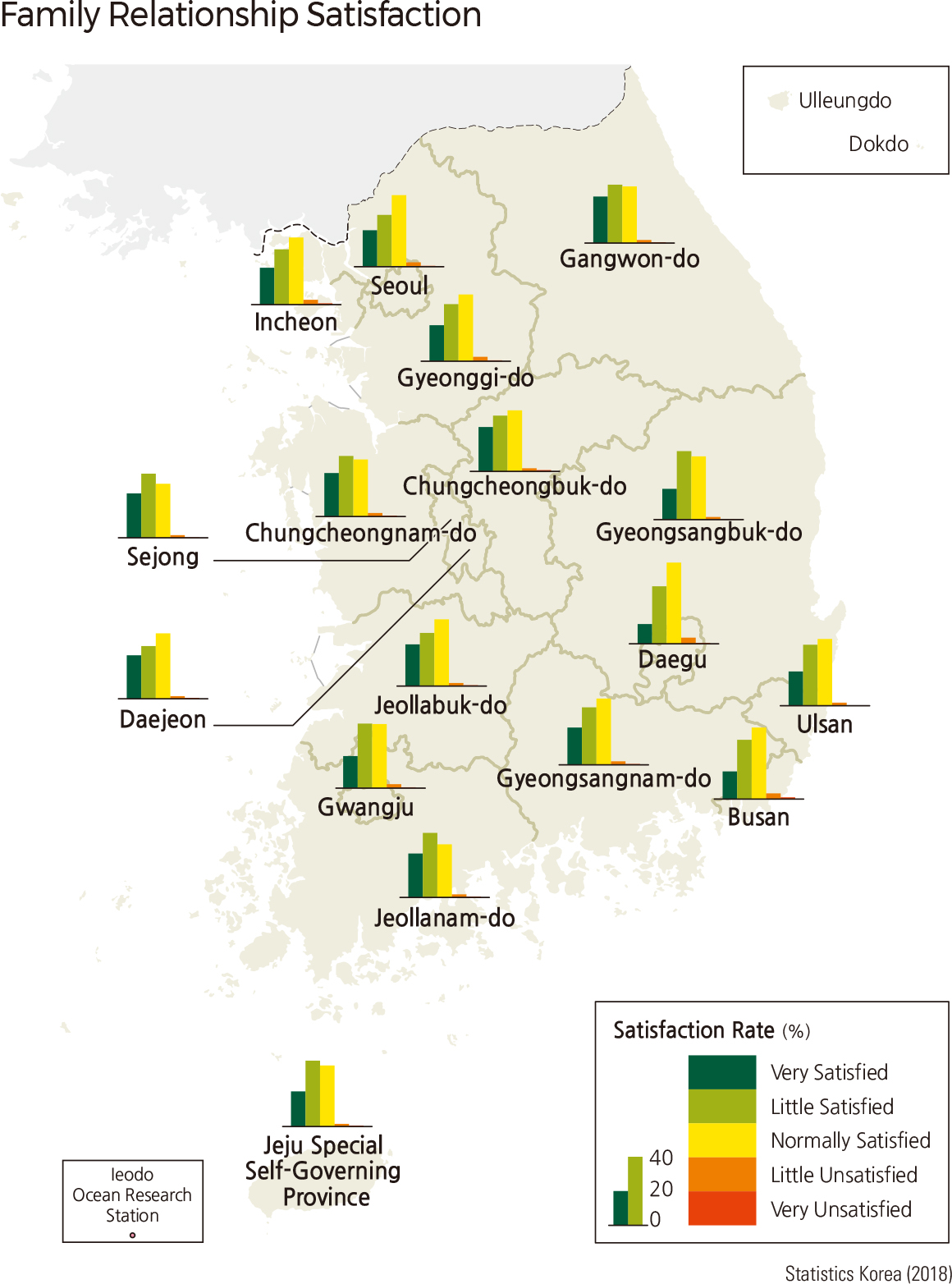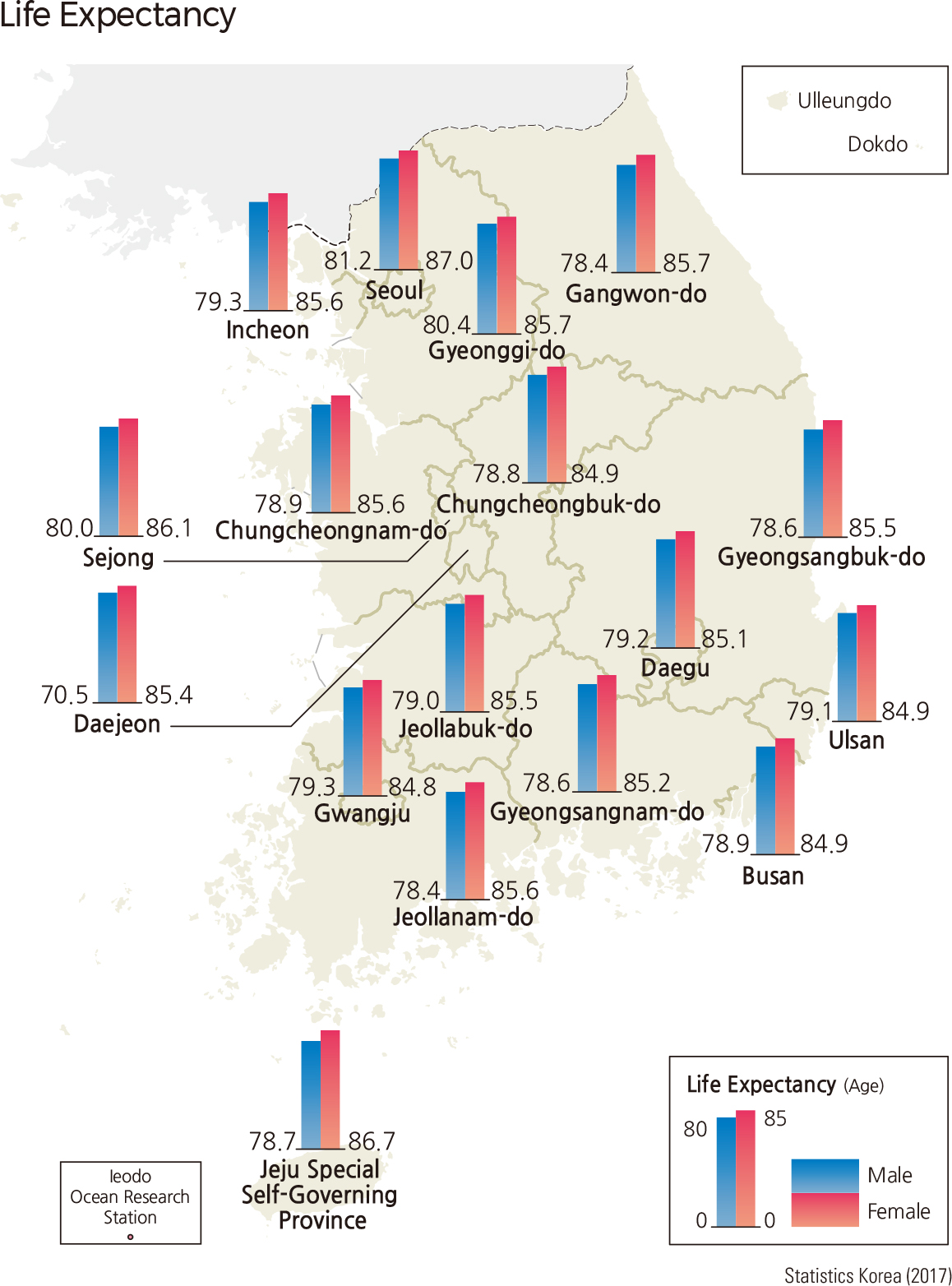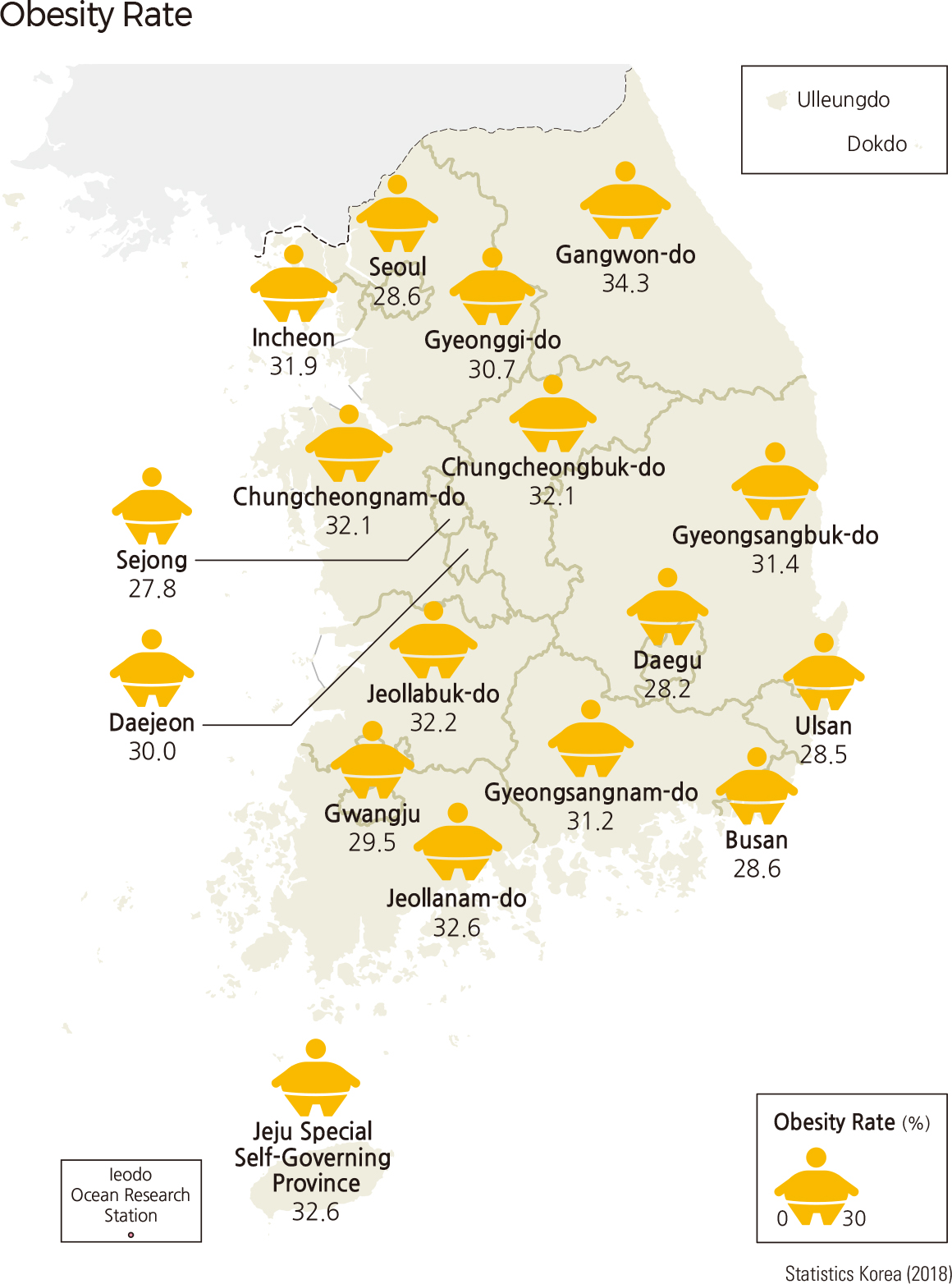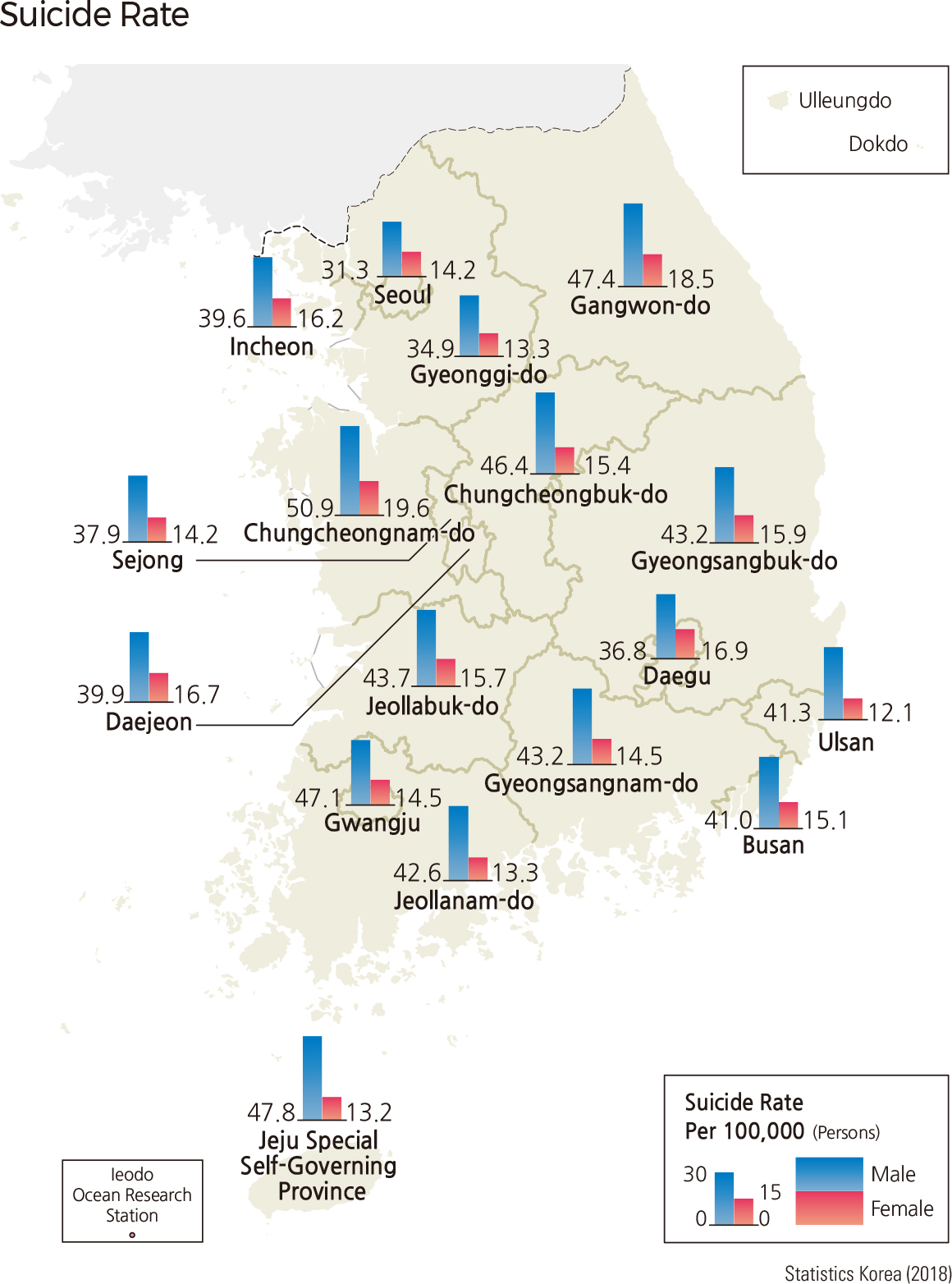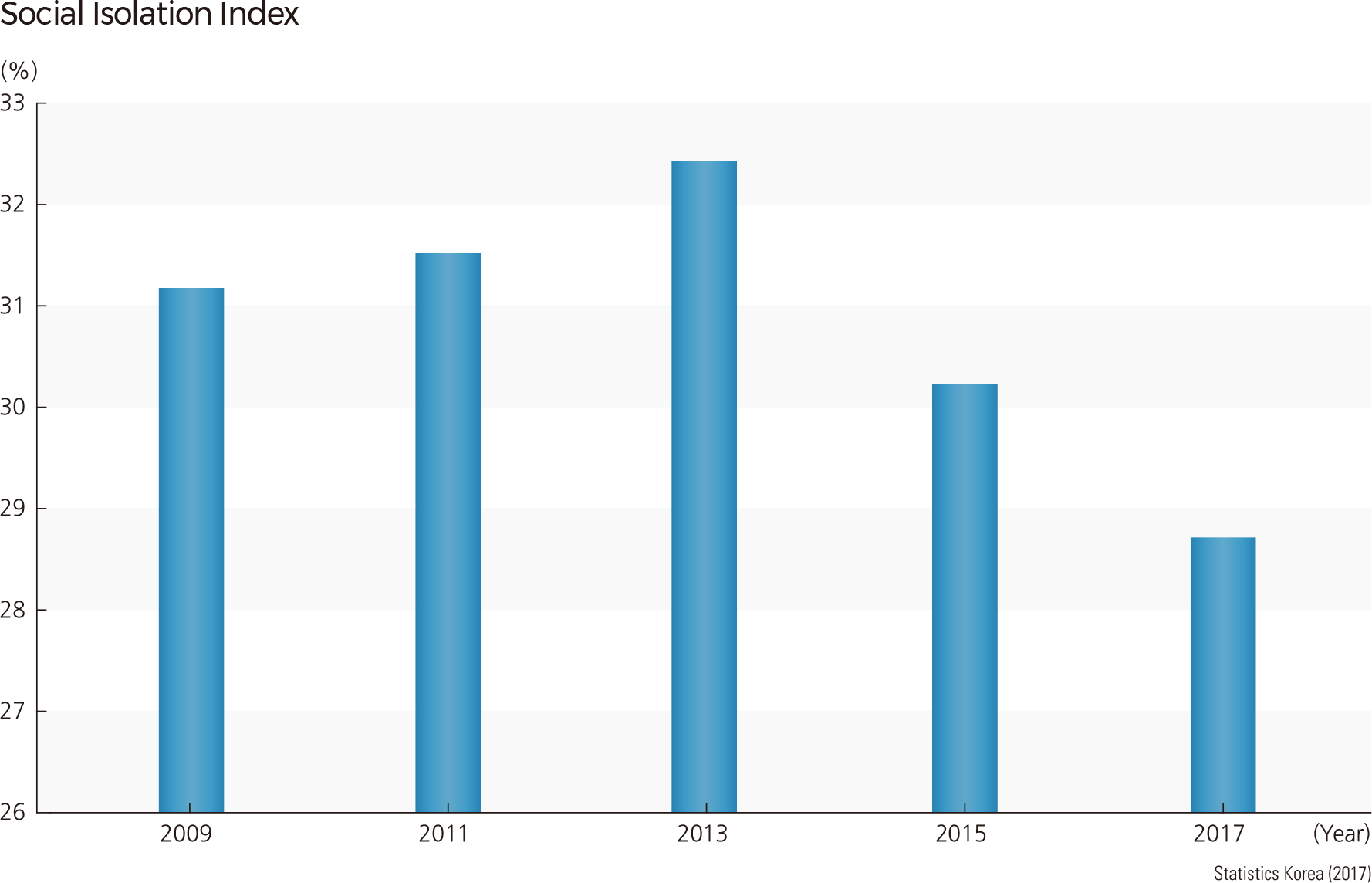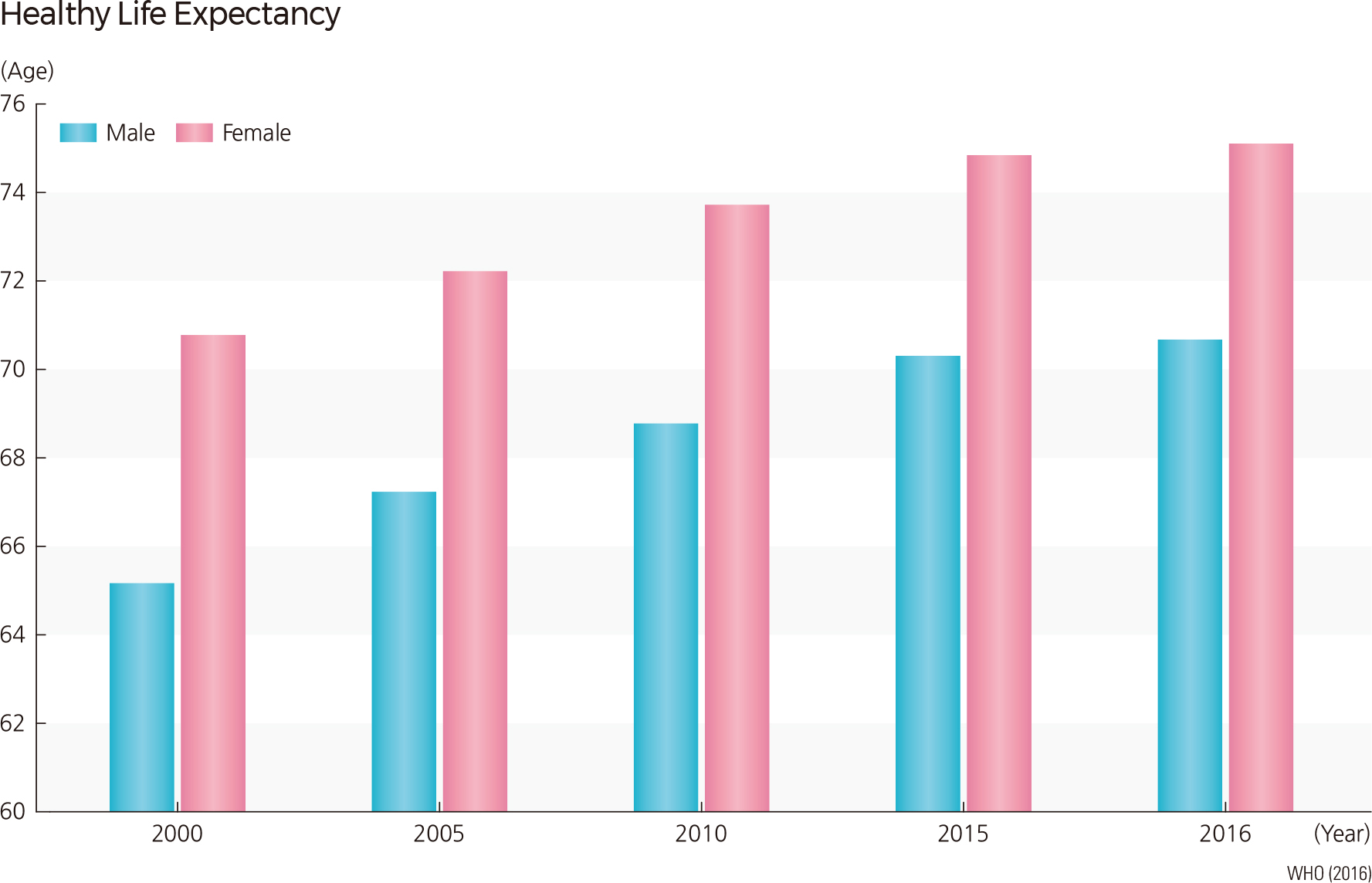English I 2019
Families and communities contribute to improving the quality of life by providing emotional, physical, and financial care and support. Not only are individuals provided with care, support, and security through their families and communities, but also identity, belonging, social values and norms are reproduced through their families and communities. In health, longevity and the quality of life matter. Good health not only increases the subjective life satisfaction but also contributes to society by improving activity capabilities in various areas of life.
Of the five indicators in the family and community sectors in 2018, family satisfaction, community affiliation, social group participation rate, and social isolation index all improved except for the ratio of elderly living alone. In particular, Sejong, Jeollanam-do, and Gangwon rated the highest in the distribution of family relationship satisfaction, while Daegu ranked the lowest. Life expectancy, healthy life expectancy, stress perception rate, subjective health status, obesity rate, and physical activity practice rate all improved except for the suicide rate among seven indicators in health. The distribution of subjective health status showed Daejeon, Ulsan, and Seoul in good health, while Incheon was the least healthy. |
